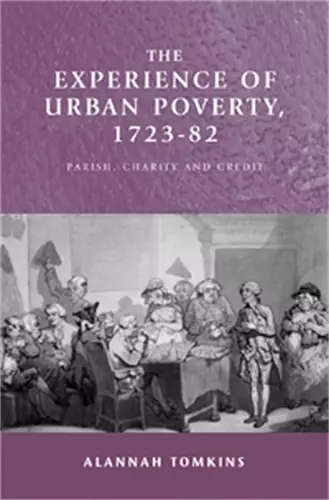The Experience of Urban Poverty, 1723–82
Parish, Charity and Credit
Format:Hardback
Publisher:Manchester University Press
Published:30th Oct '06
Currently unavailable, and unfortunately no date known when it will be back

This comparative study of urban poverty is the first to chart the irregular pulse of poverty’s encounters with officialdom. It exploits an unusual methodology to secure new perspectives from familiar sources.
The highly localised characteristics of the welfare economy generated a peculiarly urban environment for the poor. Separate chapters examine the parameters of workhouse life when the preconceptions of contemporaries have been stripped away; the reach of institutional charities such as almshouses, schools and infirmaries; and the surprisingly broad clientele of urban pawnbrokers. Detailed analysis of the poor is achieved via meticulous matching of individuals who fell within the purview of two or more authorities. The result is a unique insight into the survival economics of urban poverty, arising not from a tidy network of welfare but from a loose assembly of options, where the impoverished positioned themselves repeatedly to fit official, philanthropic, or casual templates of the ‘deserving’.
This book will be essential reading for historians of English poverty and welfare, and eighteenth-century social and economic life.
Tomkins presents the conditions under which the poor lived, drawing on life in the workhouse, traditional poor relief such as lodging in poorhouses, health care, and schools for the poor. The section on credit and pawn broking among those in distress is especially significant because this is a field that has hardly been researched so far, and it demonstrates the flexibility of the poor in their struggle against want. -- .
ISBN: 9780719075049
Dimensions: 234mm x 156mm x 17mm
Weight: 599g
304 pages